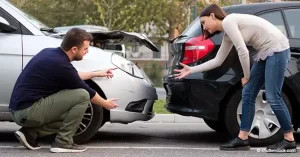Navigating the aftermath of a car accident is stressful enough without the added complexity of medical bills. If you’ve been injured, focusing on recovery should be your priority, not deciphering confusing healthcare charges. However, understanding how medical billing works, especially with Accident Doctors, is crucial. The process varies significantly depending on your state and insurance coverage. This guide simplifies the common billing methods and explains how accident doctors streamline this process.
Attorney’s Lien: Delayed Payment for Treatment
In many states, an attorney’s lien is a prevalent way to handle medical payments after a car accident. It’s not immediate payment but rather an agreement for delayed payment. Essentially, your personal injury attorney and the accident doctor enter into a contract. This document ensures the doctor will be paid for your treatment from the settlement you receive at the conclusion of your personal injury case.
- Pros: Access immediate medical care without upfront, out-of-pocket expenses. This allows you to focus on healing without financial strain during treatment.
- Cons: There’s a slight possibility that the settlement may not fully cover all medical bills, potentially leaving you with a remaining balance. It’s crucial to discuss potential costs and settlement expectations with both your attorney and accident doctor.
Letter of Protection (LOP): Similar to Attorney’s Lien
A Letter of Protection (LOP) is essentially synonymous with an attorney’s lien. Both serve the same purpose: guaranteeing payment to the accident doctor from your future settlement. This arrangement allows you to receive necessary medical treatment without immediate financial burden.
Personal Injury Protection (PIP): Direct Billing in No-Fault States
If you reside in a Personal Injury Protection (PIP) state, your own auto insurance will typically cover your medical expenses first, regardless of who was at fault for the accident. In these “no-fault” states, accident doctors directly bill your PIP insurance for your medical care. PIP coverage varies by state but generally covers reasonable and necessary medical expenses up to your policy limit.
 car accident
car accident
If your PIP coverage is exhausted before your treatment is complete, the remaining medical costs can often be handled under an attorney’s lien if you decide to pursue legal action. You don’t necessarily need an attorney to utilize PIP, but consulting with a personal injury attorney can be beneficial if your injuries are severe or if you anticipate exceeding your PIP coverage limits. Accident doctors are experienced in navigating PIP claims and will handle the necessary paperwork, allowing you to concentrate on your recovery. PIP benefits also extend to passengers injured in your vehicle, providing them with the same coverage as you. If passengers require medical attention, ensure they are also seen by an accident doctor promptly.
No-Fault Insurance: Ensuring Access to Care
The term “no-fault insurance” is often used interchangeably with PIP. The primary goal of no-fault insurance is to ensure individuals receive prompt medical care after a car accident, irrespective of fault. This means that even if you were responsible for the accident, you and your passengers are generally entitled to medical treatment covered by your no-fault insurance.
Accident doctors in no-fault states are well-versed in billing these insurance claims and managing the required documentation. If you’ve been injured in an accident, even if you were at fault, contacting an accident doctor is a crucial first step to access medical care without needing immediate out-of-pocket payments. You typically do not need an attorney to utilize your no-fault insurance benefits for medical treatment with an accident doctor.
Medical Payments (Med Pay): Optional Coverage for Medical Bills
Medical Payments coverage, or Med Pay, is an optional add-on to your auto insurance policy that many insurers don’t actively promote. You choose your coverage amount when purchasing your policy, and it can be added later if you don’t currently have it. Similar to PIP, accident doctors can bill your Med Pay insurance directly. The insurance company will then send payment either directly to you or to the accident doctor.
Med Pay offers flexibility as you can seek treatment from any physician. However, accident doctors are particularly adept at handling Med Pay claims related to car accidents. They will typically manage all the necessary paperwork, simplifying the process for you. Like PIP, Med Pay allows you to see an accident doctor without needing an attorney and ensures your medical bills are addressed promptly.
Pros and Cons of Using Med Pay
Pros: Your medical expenses are paid upfront, and these payments do not typically reduce your potential settlement amount from the at-fault driver’s insurance.
Cons: In some cases, an attorney might include Med Pay reimbursements as part of the overall settlement. They might then attempt to negotiate down the accident doctor’s bill, potentially without reducing their own fees, which could financially impact the medical provider. It’s important to discuss how Med Pay will be handled with your attorney.
Billing the At-Fault Party’s Insurance: Direct Billing Limitations
Many individuals mistakenly believe that medical providers can directly bill the at-fault driver’s insurance company. However, direct billing to the at-fault party’s insurer is uncommon and only possible in a limited number of states or with specific insurance companies and legal frameworks in place.
- Pros: If direct billing is possible, medical expenses are paid upfront directly to the accident doctor, eliminating immediate financial concerns for the patient.
- Cons: Direct billing to the at-fault party is rarely an option, making it an unreliable payment method in most situations.
Third-Party Billing: A General Term for Direct Insurance Billing
“Third-party billing” is a broad term that simply refers to billing an insurance company directly, whether it’s through PIP or Med Pay. Accident doctors are experienced in third-party billing practices, ensuring your medical claims are submitted correctly and efficiently to the relevant insurance providers.
By understanding these different medical billing methods and seeking care from accident doctors experienced in handling car accident injuries and related billing complexities, you can navigate the financial aspects of your recovery more effectively and focus on what truly matters – getting better.

